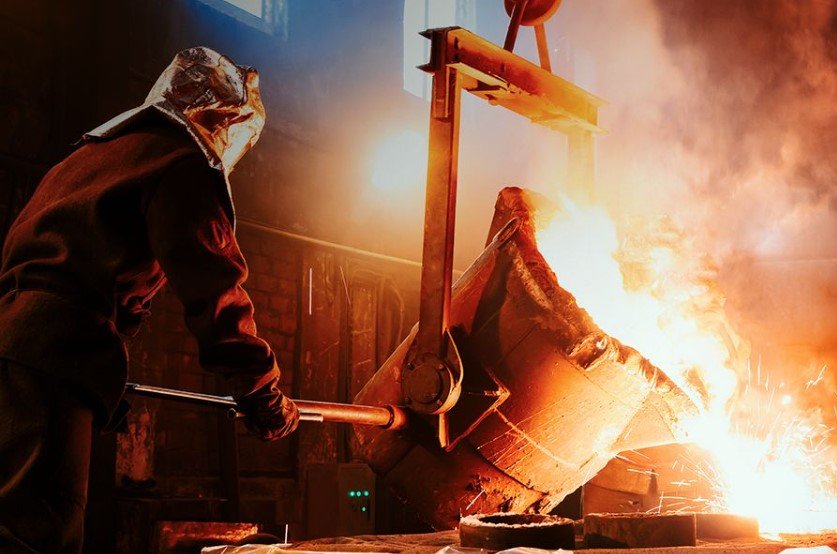The UK has been temporarily spared from the hefty 50% steel and aluminium tariffs slapped on other countries by the US under former President Trump’s trade policies. But this reprieve might not last long unless London and Washington seal a new trade agreement soon.
A Temporary Breather for UK Steel Exports
The news that the UK won’t immediately face the massive 50% tariffs on steel and aluminium has come as a sigh of relief for many British exporters. The US had previously announced the doubling of tariffs from 25% to 50%, sending shockwaves through global markets and putting heavy pressure on exporters from the European Union and other countries. However, the UK, for now, is on a different path.
Gareth Stace, director general of UK Steel, didn’t hold back his feelings when he spoke on BBC Radio 4’s Today programme. He urged the UK government to “apply rocket boosters” to ongoing trade negotiations with the US to keep tariffs off British steel and aluminium products altogether. The US remains one of the UK’s largest export markets, making these talks crucial for the industry’s survival.
“It’s been a rollercoaster ride of uncertainty,” Stace admitted. Just days ago, the threat of a tariff hike to 50% caused many UK exporters to pause or cancel orders. Now they’re scrambling to reconnect with clients and figure out what happens next.
The clock is ticking. If a trade deal isn’t finalized by July, the UK could still face the full brunt of the increased tariffs.

The Wider Trade Landscape: US, EU, and G7 in Talks
While the UK watches nervously, talks between the US and the EU continue in Paris. US Trade Representative Jamieson Greer met with European Commission Vice-President Maroš Šefčovič, with hopes to ease tensions and find common ground. These discussions come amid a backdrop of increased tariffs and protectionist measures that have rattled global supply chains and unsettled markets.
The G7 countries are also convening to discuss trade issues, trying to figure out ways to promote smoother cooperation and reduce the kind of trade disruptions that have plagued the past few years. These forums often serve as an important platform for dialogue, but real progress can be slow and fraught with political posturing.
On the ground, companies are feeling the squeeze. Brandauer, a manufacturer affected by tariffs, recently warned of “far reaching” uncertainty caused by the US’s trade policies. Such unpredictability makes it difficult for businesses to plan investments or even maintain steady production schedules.
Market Reactions and Global Ripple Effects
Even with this temporary tariff relief for the UK, markets remain jittery. European shares took a small upward turn despite the looming trade barriers. Airbus, for example, saw its shares climb 3.4% following reports that Chinese airlines might place large orders soon. Germany’s DAX and France’s CAC also saw modest gains, while London’s FTSE 100 held steady.
Still, the overall mood is cautious. The threat of tariffs tends to cast a long shadow over trade flows and investor confidence, especially in sectors like steel and aluminium that are sensitive to import costs and supply chain changes.
Looking at the bigger picture, the UK’s current exemption is less a victory and more a pause button. Without a solid deal, the potential for tariff hikes could disrupt the industry and cause headaches for businesses that rely on the US market. It’s a high-stakes waiting game, with each day adding pressure on negotiators.
What This Means for UK Steelworkers and Exporters
For those on the ground in the UK’s steel towns—places like Scunthorpe in Lincolnshire—the news offers hope but also uncertainty. Steelworkers have watched the industry’s fortunes wax and wane as global trade tensions flare up. The sudden threat of tariff hikes led to order cancellations and doubts about the future.
Now, exporters must reconnect with US customers and clarify if deals can go ahead without the looming cost increases. Every shipment delayed or canceled has real consequences for jobs, local economies, and the communities built around steel production.
A simple table helps put things into perspective:
| Aspect | Status |
|---|---|
| Current UK Tariff Rate | 25%, not yet doubled to 50% |
| Possible Future Tariff | 50% starting July if no deal |
| UK’s Second Largest Market | United States |
| Main Concerns | Export cancellations, order delays |
| Government Role | Negotiating trade deal urgently |
This ticking clock puts huge pressure on UK officials to wrap up negotiations quickly, or face serious economic consequences.
The UK is walking a tightrope with this temporary exemption. One false move, and steel exports could take a big hit, leaving businesses and workers scrambling once again. As Gareth Stace put it, the government needs to “rocket boost” talks—and fast.








